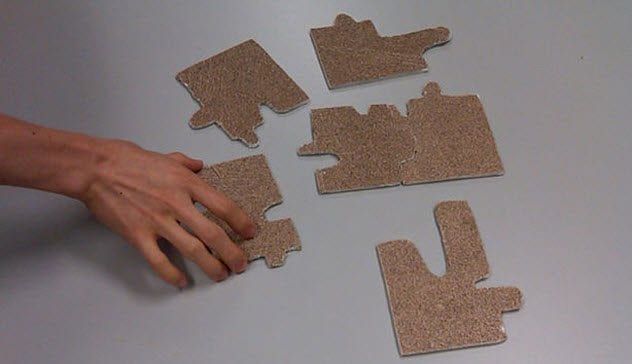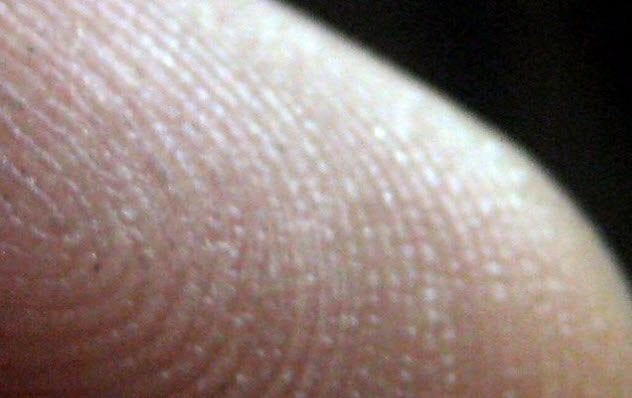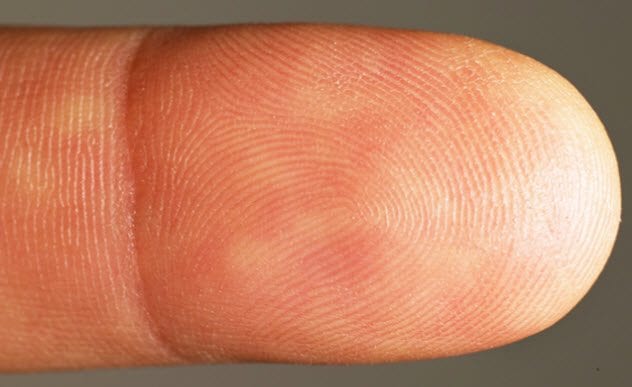 History
History  History
History  Movies and TV
Movies and TV 10 Movie Adaptations That Ruined Everything for Some Fans
 History
History 10 Dirty Government Secrets Revealed by Declassified Files
 Weird Stuff
Weird Stuff 10 Wacky Conspiracy Theories You Will Need to Sit Down For
 Movies and TV
Movies and TV 10 Weird Ways That TV Shows Were Censored
 Our World
Our World 10 Places with Geological Features That Shouldn’t Exist
 Crime
Crime 10 Dark Details of the “Bodies in the Barrels” Murders
 Animals
Animals The Animal Kingdom’s 10 Greatest Dance Moves
 Movies and TV
Movies and TV 10 Box Office Bombs That We Should Have Predicted in 2025
 History
History 10 Extreme Laws That Tried to Engineer Society
 History
History 10 Wars That Sound Made Up (but Absolutely Happened)
 Movies and TV
Movies and TV 10 Movie Adaptations That Ruined Everything for Some Fans
 History
History 10 Dirty Government Secrets Revealed by Declassified Files
Who's Behind Listverse?

Jamie Frater
Head Editor
Jamie founded Listverse due to an insatiable desire to share fascinating, obscure, and bizarre facts. He has been a guest speaker on numerous national radio and television stations and is a five time published author.
More About Us Weird Stuff
Weird Stuff 10 Wacky Conspiracy Theories You Will Need to Sit Down For
 Movies and TV
Movies and TV 10 Weird Ways That TV Shows Were Censored
 Our World
Our World 10 Places with Geological Features That Shouldn’t Exist
 Crime
Crime 10 Dark Details of the “Bodies in the Barrels” Murders
 Animals
Animals The Animal Kingdom’s 10 Greatest Dance Moves
 Movies and TV
Movies and TV 10 Box Office Bombs That We Should Have Predicted in 2025
 History
History 10 Extreme Laws That Tried to Engineer Society
10 Facts About Your Sense Of Touch That Will Really Surprise You
Let’s say you have a problem with one of your senses. Who would you go to? Otolaryngologists deal with your ears, nose, and throat (which is why they’re often just called ENTs). Ophthalmologists deal with your sense of sight. If you have problems with hearing, smell, taste, or sight, you just go to one of these common doctors.
But what if your sense of touch is off? Who do you go to? Basically, you have to go see a neurologist or even a brain surgeon. There is no one who specializes just in your sense of touch—maybe because we tend to believe that touch is the least useful of the senses.
Or maybe it’s because science knows so little about touch relative to the other senses. Every year, we learn more about our underappreciated sense of touch. It may just be more important than we ever thought.
10 Influences Decisions

Most people probably think they’re in control of their thoughts and decisions. It’s called free will, and it’s kind of a big deal. But are you sure that your honest, objective decisions are truly your own?
Leading research says that you may be influenced by the slightest things without consciously realizing it. Researchers ran groups of volunteers through a variety of scenarios to test the idea of scaffolding, in which “humans learn to grasp abstract mental concepts by relying upon physical sensations.”
Subjects evaluating resumes on heavy clipboards rated them as more serious than resumes on light clipboards. In a different test, subjects in hard seats were less likely to negotiate price than people in softer chairs. People who handled rough, sandpaper-textured puzzle pieces rated social interactions more harshly than others.
Why do your physical surroundings affect your opinions?
Researchers suspect that it has something to do with your formative experiences as a child. Those experiences involve the physical world more than anything else because children can’t compare things to their memories yet.
9 Affects Taste

Everyone has different tastes, but there are five flavors that are universally accepted: sweet, bitter, sour, salty, and now umami (savory). Although taste scientists argue over whether to add new flavors to the list, most agree that the burn you feel from hot peppers or the coolness of mint are not flavors. Those sensations are not created from taste buds but from touch receptors.
Capsaicin is the substance that makes peppers hot, and it just so happens to trigger the TRPV1 receptors in your skin. These types of nerves usually send warnings to your brain when they come into contact with anything around 42 degrees Celsius (107.6 °F), “which is the heat pain threshold for humans.”
Capsaicin triggers this activation at 35 degrees Celsius (95 °F). That’s lower than normal body temperature. We have these TRPV1 sensors all over the body, which is why pepper spray works.
So what’s really happening is that your body is fooled into thinking that a chemical irritant is something hot. But “spicy” and “hot” are not flavors. These sensations aren’t even transmitted to the brain using the same pathways.
In the same way, peppermint and menthol trigger the TRPM8 touch receptors. They trick those receptors into telling the brain that something is cool.
In fact, mouthfeel might affect several taste sensations. Studies have also shown that our perception of sweetness can be affected by viscosity. Some scientists conjecture that touch fibers in our taste buds help us distinguish fats and the taste of “creamy.”
8 Affects The Sexes Differently

Even a slight touch can be a powerful thing. Studies show that being touched in a friendly, nonsexual way can cause physical and psychological changes. In one study, it was found that people become more confident when they’re touched by a woman. Furthermore, when a man is touched by a woman—like a pat on the back—he’s willing to take more risks.
The reason a woman’s touch makes people more confident is probably because babies are constantly being touched by their mothers to encourage them. Having physical contact with a woman simulates this feeling. The study showed that handshakes don’t produce as much of an effect and being touched by a man doesn’t make anyone more secure.
However, a different study showed that a woman’s temperature can rise by almost a full degree if she is touched by a man. The face and chest skin are the areas that get the warmest. One-quarter of the test subjects didn’t even realize that they were getting excited. Men get warmer, too, but by a much smaller degree.
So, women, feel free to go touch anyone you want. Men . . . only touch people if they’re cold.
7 It’s Incredibly Sensitive

Senses like sight and hearing are considered fundamentally important to most of us, and they’re easy to measure. If you have an exceptional sense of smell or taste, you can use these endowments to make a career in the perfume or food industries.
However, touch sensitivity has largely been ignored. Although it seems like the least of the five senses, the predominance of touch screens on our electronic devices is finally getting touch some attention.
To build a better touch screen, you have to know how sensitive our sense of touch is. Swedish scientists have now shown that “the human finger can discriminate between surfaces patterned with ridges as small as 13 nanometers in amplitude.” That’s incredibly sensitive. A nanometer is one-thousandth of a micrometer. A micrometer is one-thousandth of a millimeter, or roughly 0.00004 inches.
On a smooth surface, humans can apparently feel large molecules and single-celled organisms. Viruses can be 20 to 300 nanometers, which is well within the realm of our touch. Our fingertips can perceive a world well beyond what the naked eye can discern.
6 Leads To Success

Touch is the first sense. It’s the one most developed in babies, so it should follow that touch is very important. In fact, it’s so important that teams that are more “touchy-feely” tend to have more success.
While previous studies have shown that emotion can be communicated through touch, no one had ever looked at how touch influences performance. A study of NBA players showed that teams who engage in more “fist bumps, high fives, chest bumps, leaping shoulder bumps, chest punches, head slaps, head grabs, low fives, high tens, full hugs, half hugs, and team huddles” perform better individually and as a team.
Researchers watched an entire season of basketball and recorded every time that teammates made any intentional physical contact. The results showed that touchy teams tend to be more cooperative and more successful.
5 Related To Hearing

Hearing has been studied a lot. With the advancements in DNA sequencing in recent years, science has found over 70 genes that can cause deafness or hearing loss. Not one gene has ever been found to influence the sense of touch, though.
Researchers in Berlin wanted to know if there was a genetic relationship between hearing and touch. After all, they operate in a similar way. They’re the only two senses that “rely on the transformation of mechanical force into electrical signals.”
Testing on subjects, including identical and fraternal twins, showed a correlation between loss of touch and loss of hearing. Furthermore, people with Usher syndrome, which can cause deafness and blindness, had a poor sense of touch as well. Usher syndrome is caused by a mutation in a gene known as USH2A.
This provided evidence that a poor sense of touch can be an inheritable condition and that hearing and touch are evolutionarily related. It should be stated, though, that not everyone with hearing loss has a poor sense touch. “The genetic component (heritability) appeared to be half as strong for touch (0.28) as it was for hearing (0.52).”
4 Science Can’t Turn It Off

Your sense of touch is a complex phenomenon that is not entirely understood. For instance, when someone’s fingers are anesthetized, people are still able to use their hands. You shouldn’t be able to feel anything, but research has shown that people can still feel fine surface detail.
If medical science has deadened the nerves in your hand, then what is giving you a sense of touch?
The answer may be that vibrations from touch travel farther up your arm. If your hand has been rendered numb by painkillers, could it be that parts of the hand near the wrist are receiving vibrations that are interpreted as touch?
Researchers suspect that the hand can interpret vibrations just like the ear does. Currently, scientists are studying these vibrations to better understand the mechanics involved. Advancement in this field might help us to make more sensitive robots, better prosthetics, and more realistic virtual reality.
3 Women Have Better Touch

It will probably come as no shock to anyone, but women typically have smaller hands than men. Researchers studying the sense of touch showed that smaller hands are more sensitive than larger ones. “Tinier digits likely have more closely spaced sensory receptors.”
Our fingers are packed with sweat pores, which are surrounded by different types of sensory receptors. Some respond to indentations while others respond to vibrations.
Adults tend to have the same number of these receptors regardless of hand size. Therefore, people with petite hands will have these sensory receptors packed closer together, giving them a finer sense of touch. This may mean that people with small hands are better at touch-reliant occupations like surgery or embroidery.
The study is ongoing and looking to determine if children have even more sensitive touch.
2 Inattentional Numbness

According to researchers, the best time to pick someone’s pocket is when they’re visually preoccupied—like if they’re reading departure times for a train or plane. In one study, “noticeable tactile stimulus was reduced when [participants] carried out the more taxing visual search task.”
It’s called inattentional numbness. Research done at Royal Holloway, University of London, offers the first evidence that looking too hard at something makes you less sensitive to touch. It was already well-known that people can miss visual or auditory stimuli if they are paying attention to something else. But tactile information had never been tested this way.
Researchers found that study participants had a reduced ability to detect clear tactile stimuli when their visual perceptual load was high. This kind of research is important because new smart cars are starting to provide tactile alerts to warn drivers when they are drifting across lanes.
1 Fingerprints

The epidermal ridges, or “fingerprints,” have always been a mystery. Most animals don’t have them, so why do we?
For years, the most widely held idea was that they increased grip strength. But recent tests say that this is probably not the case. In fact, fingerprints may be worse for gripping in some instances than smooth skin.
So what’s their purpose?
Georges Debregeas and his team at the University of Paris have tested fingerprints in another way. They determined that fingerprints amplify our sense of touch instead of amplifying friction for grip.
The receptors for touch are deep inside our skin. Their tests show that fingerprints not only help to convey signals to our nerves but also filter out all the unimportant background vibrations—everything above and below 250 hertz—which is like white noise in a tactile sense.
Instead of the brain taking in everything and trying to make sense of all the tangled sensations, our bodies may have built-in filters and amplifiers to give it only what it needs.
Monte L. Richard II is a writer and game developer. You can check out his latest game on Steam.








